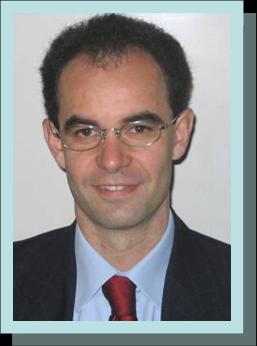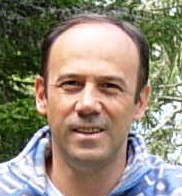Studying at the University of Verona
Here you can find information on the organisational aspects of the Programme, lecture timetables, learning activities and useful contact details for your time at the University, from enrolment to graduation.
Academic calendar
The academic calendar shows the deadlines and scheduled events that are relevant to students, teaching and technical-administrative staff of the University. Public holidays and University closures are also indicated. The academic year normally begins on 1 October each year and ends on 30 September of the following year.
Course calendar
The Academic Calendar sets out the degree programme lecture and exam timetables, as well as the relevant university closure dates..
| Period | From | To |
|---|---|---|
| First semester | Oct 4, 2010 | Dec 22, 2010 |
| Second semester | Feb 21, 2011 | May 25, 2011 |
| Session | From | To |
|---|---|---|
| Winter session | Jan 10, 2011 | Feb 19, 2011 |
| Summer session | May 30, 2011 | Jul 9, 2011 |
| Autumn session | Aug 29, 2011 | Sep 24, 2011 |
| Period | From | To |
|---|---|---|
| All Saints | Nov 1, 2010 | Nov 1, 2010 |
| National holiday | Dec 8, 2010 | Dec 8, 2010 |
| Christmas holidays | Dec 22, 2010 | Jan 6, 2011 |
| Easter holidays | Apr 22, 2011 | Apr 26, 2011 |
| National holiday | Apr 25, 2011 | Apr 25, 2011 |
| Labour Day | May 1, 2011 | May 1, 2011 |
| National holiday | Jun 2, 2011 | Jun 2, 2011 |
| Summer holidays | Aug 8, 2011 | Aug 15, 2011 |
Exam calendar
Exam dates and rounds are managed by the relevant Economics Teaching and Student Services Unit.
To view all the exam sessions available, please use the Exam dashboard on ESSE3.
If you forgot your login details or have problems logging in, please contact the relevant IT HelpDesk, or check the login details recovery web page.
Academic staff
Borrione Marco
 roberto.fini@univr.it
roberto.fini@univr.it
 annamaria.guolo@univr.it
annamaria.guolo@univr.it
Lassini Ugo
 ugo.lassini@univr.it
ugo.lassini@univr.it

Lionzo Andrea
 andrea.lionzo@univr.it
andrea.lionzo@univr.it
Roventini Andrea
 andrea.roventini@univr.it
andrea.roventini@univr.it
 massimo.tezza@univr.it
massimo.tezza@univr.it
 giuseppe.trabucchi@univr.it
giuseppe.trabucchi@univr.it
Study Plan
The Study Plan includes all modules, teaching and learning activities that each student will need to undertake during their time at the University.
Please select your Study Plan based on your enrollment year.
1° Year
| Modules | Credits | TAF | SSD |
|---|
2° Year activated in the A.Y. 2011/2012
| Modules | Credits | TAF | SSD |
|---|
3° Year activated in the A.Y. 2012/2013
| Modules | Credits | TAF | SSD |
|---|
| Modules | Credits | TAF | SSD |
|---|
| Modules | Credits | TAF | SSD |
|---|
| Modules | Credits | TAF | SSD |
|---|
Legend | Type of training activity (TTA)
TAF (Type of Educational Activity) All courses and activities are classified into different types of educational activities, indicated by a letter.
Mathematics (2010/2011)
Teaching code
4S00181
Credits
9
Language
Italian
Also offered in courses:
- Mathematics of the course Bachelor's degree in Economics and Business (Vicenza)
- Mathematics - lezione of the course Bachelor's degree in Economics and Business (Vicenza)
- Mathematics - esercitazione of the course Bachelor's degree in Economics and Business (Vicenza)
- Mathematics - esercitazione of the course Bachelor's degree in Economics and Business (Vicenza)
Scientific Disciplinary Sector (SSD)
SECS-S/06 - MATHEMATICAL METHODS OF ECONOMICS, FINANCE AND ACTUARIAL SCIENCES
The teaching is organized as follows:
lezione
esercitazione [A-K]
esercitazione [L-Z]
Learning outcomes
Module: 1 - lectures
-------
The aim of the course is to give the basic mathematical knowledge, necessary to the following courses in statistics and economics. The course provides the classical arguments from mathematical analysis and linear algebra.
Module: 2 - esercise lectures
-------
This module intends to complete the theoretic knowledge with the adequate calculus ability
Program
Module: 1 - lectures
-------
Part I (revisal)
Polinomials
Powers and logarithms
Equations and inequalities
Analytic geometry
Part II (Real analysis)
Theory of sets. Power set. Cartesian product. Numerical sets: natural, integer, rational and real numbers
Functions. Composition of functions. Inverse function
Real numbers. Sup and inf of a set of real numbers.
Real functions. Plot. Image and inverse image. Sup of a function. Monotone functions. Elementary functions and their graphics. Power, exponential and logarithmic function
Limits and continuity. Calculus of limits. Landau symbols. Continuous functions. Weierstrass theorem
Derivatives. Calculus of derivatives. Stationary points. Maxima and minima of functions. Lagrange theorem. Mention to Taylor's formula and convex functions
Integrals. Primitive of a function. Riemann integral. Some properties of the Riemann integral. Integral function and the fundamental theorem of calculus. Calculus of the Riemann integral. Elementary methods. Integration by parts. Change of variable in the integral. The Riemann generalized integral.
Series. Geometric series and armonic series. Convergence criteria for series with positive terms
Part III (Linear algebra)
Linear spaces Rn. Linear dependence and linear independence. Subspaces. Basis and dimension of a space. Inner product
Mention to linear transformations. Matrices. Kernel and image of a linear transformation. Rank
Determinant and its properties. Inverse matrix. Calculus of the rank
Systems of linear equations. Rouché-Capelli's theorem. Cramer's theorem
Part IV (Real analysis in more variables)
Functions of more than one variable. Sets in Rn. Restriction. Level curves
Quadratic forms. Sign of a quadratic form. Study of the sign with principal minors
Partial derivatives and gradient. Derivatives and continuity. Differentiability. Second derivatives and Schwarz's theorem
Maxima and minima. Non constrained and constrained search of minima
Module: 2 - esercise lectures
-------
The topics are the same of the lectures
Examination Methods
Module: 1 - lectures
-------
In order to pass the exam students are asked to pass first a multiple choice test. A written exam is then proposed. A final oral exam is required only in case of a non full sufficiency.
Type D and Type F activities
Modules not yet included
Career prospects
Module/Programme news
News for students
There you will find information, resources and services useful during your time at the University (Student’s exam record, your study plan on ESSE3, Distance Learning courses, university email account, office forms, administrative procedures, etc.). You can log into MyUnivr with your GIA login details: only in this way will you be able to receive notification of all the notices from your teachers and your secretariat via email and soon also via the Univr app.

 +39 045 802 7094
+39 045 802 7094















